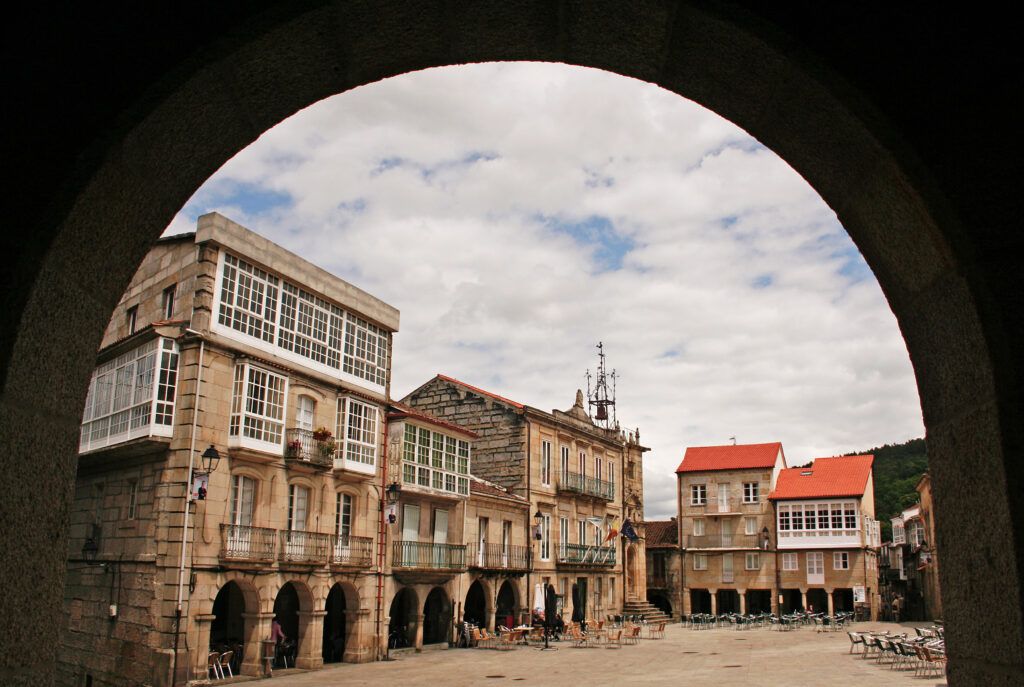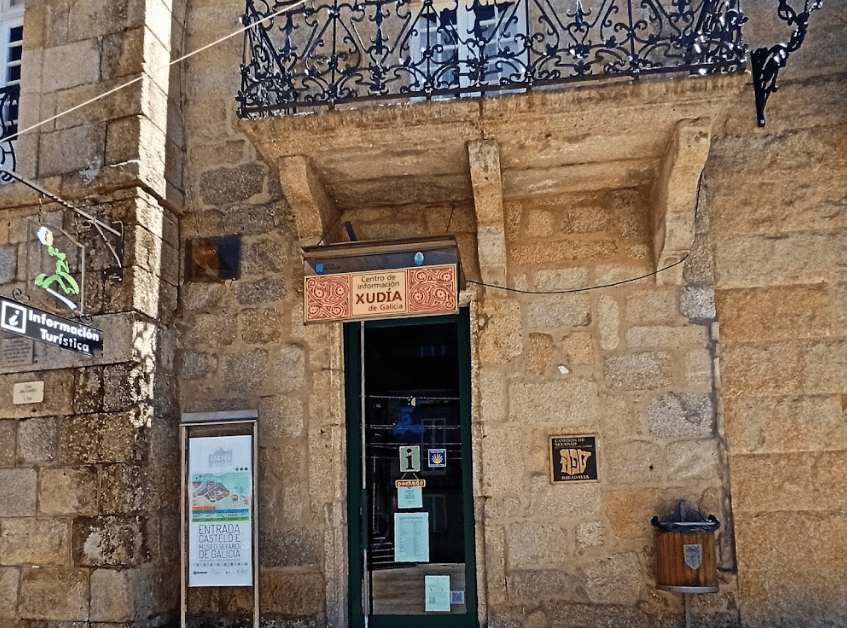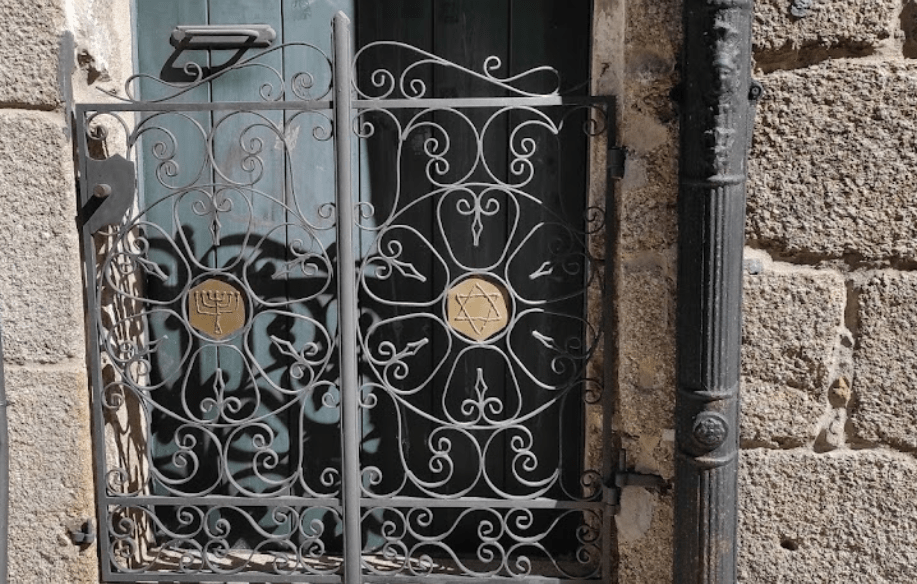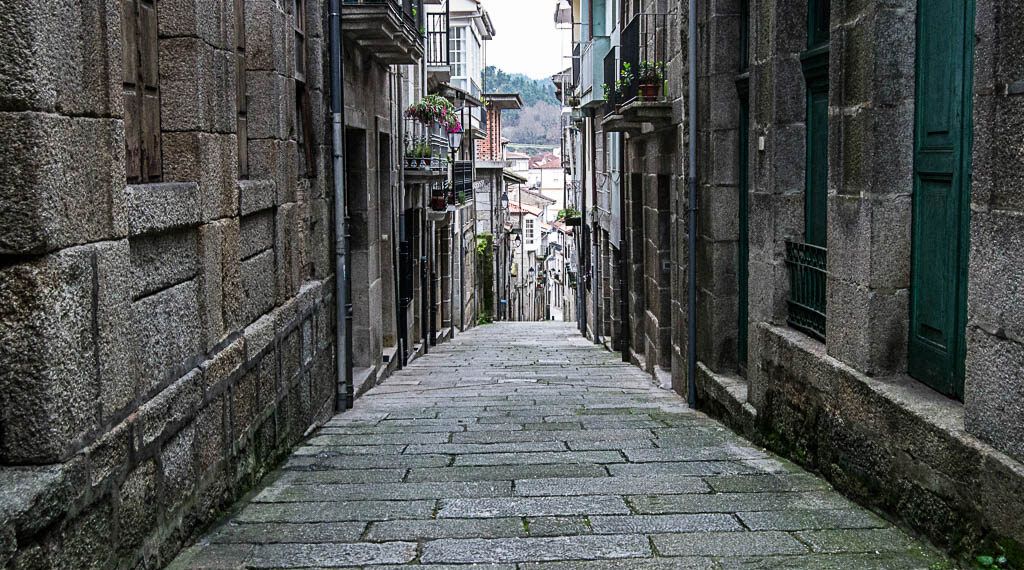Traveling to Spain often conjures images of sun-drenched beaches, flamenco dancers, and vibrant “fiestas”. Yet, beyond its famous attractions, Spain also offers a journey through Sepharad, the historical Jewish heartland on the Iberian Peninsula. This journey is particularly evident in Ribadavia, a town located in the southwest of the province of Ourense, in Galicia. Its Xudería (Jewish Quarter) reflects the vibrant life once led by its Jewish inhabitants and invites visitors to explore its narrow streets and ancient buildings.
Jewish communities flourished in the Iberian Peninsula from Roman times through the Middle Ages, contributing significantly to its culture and economy. According to several historians, before the Inquisition there were about 200,000 Jews in the region, representing 5% of the population of the kingdoms. In Galicia, the Jewish presence is registered especially since 1065, when the king chose it as the capital of his kingdom. Attracted by its economic prosperity, Jews began to arrive in the city of Ribadavia, where they formed a community of about 1.200 people by 1400, engaging in trade, crafts and intellectual pursuits.
Some of them were also linked to the activities and interests of the nobles and monarchs in the area. Abraham de León was one of them, known as the royal collector of the alcabalas, an important tax on wine. He moved to Ribadavia around the year 1440 and became the collector and confidant of Diego Pérez Sarmiento, the lord of the town.
This coexistence lasted until the Inquisition in 1492, which expelled the Jews or forced them to convert to Christianity. Ribadavia, however, preserved many of its Jewish elements, becoming a unique historical treasure dedicated to recovering the Jewish history of the area.

Traces of Jewish Culture in Ribadavia
A visit to Ribadavia’s Xudería (Jewish Quarter) starts at the Plaza Mayor, the town’s central square, where the Town Hall and the Bell Tower stand as significant landmarks. The Bell Tower, true to its name, features a wrought-iron belfry, an 18th-century sundial, and a 19th-century clock. Across from the Praza Maior lies the Pazo of the Counts of Ribadavia, housing the tourist office, the entrance to the Castle, and the Galicia Sepharadic Museum.
Located at number 7 of the Praza Maior, the Jewish Center is a unique cultural infrastructure in Galicia. It plays an important role in the promotion of Jewish heritage in the region, as a space that celebrates the cultural heritage and legacy of the Jewish presence in Ribadavia. It was renovated in June 2024, and it houses a collection of some outstanding pieces of the history of the Jewish community in Galicia, such as the menorah engraved on a stone of the Cathedral of Tui, the tombstone of the 10th-11th centuries in A Coruña, as well as reproductions of objects related to the Jewish people and culture.

When walking down the Rúa da Xudería (the street of the Jewish Quarter), it is easy to notice tiles adorned with menorahs, Hebrew letters, and Stars of David on the facades of houses—remnants of the Jewish community that once thrived here. Also, close to the intersection with Calle San Martiño, historical records indicate there was a synagogue named Torah.
Continuing along Rúa da Xudería, the street broadens into Plaza de la Magdalena, a significant junction of the Jewish Quarter. This picturesque square, with its porticoed houses on either side, was once bustling with Jewish merchants and artisans selling their goods. The square is also home to the Church of the Magdalena, adding to the area’s historical charm.
Key streets such as Porta Nova de Arriba, Porta Nova de Abaixo, Rúa dos Fornos, and Rúa de San Martiño, where the Inquisition House stands, weave a rich tapestry of history. In Porta Nova de Arriba, right next to the Medieval Studies Center, there was an historic bakery called A Tafona da Herminia. Its owner, Herminia Rodríguez Carballal, started baking Jewish pastries in 1990, when she was asked to prepare the typical Jewish recepies she knew for a Sepharadic festival. Since then, Mrs. Rodríguez has become a symbol of the town’s Jewish heritage and her store, a mandatory stop to try some of her creations, reminiscent of any Jewish grandmother’s house in the world.

Until her retirement in 2021, she would fire up her wood-fired oven at 4 a.m. to bake delicacies such as mamules with nuts and orange blossom water, hazelnut flour ghorayebah, walnut kamisch-broit, poppy seed kichelech, and almond kupferlin—an array of sweets celebrating Jewish culinary traditions.
Beyond History: Culinary Delights and Local Wines
Ribadavia’s appeal goes beyond its historical heritage. The city is known for its exceptional gastronomy and wines, especially the famous Ribeiros, known for their crisp, aromatic qualities. This wine region is known as one of the oldest designations of origin, and the local Jews played an important role in monopolizing its production and trade. They worked to improve the cultivation of the vines, creating terraces and expanding an irrigation system, and then exported this wine throughout Europe, especially to Italy, the Netherlands, Germany and England.
More information about wine can be found at the Wine Festival, celebrated every year on the last Saturday of August, or at the Galician Wine Museum. It is a monumental complex built in the 18th century for the production and storage of wine, whose permanent exhibition covers the history of Ribeiro wines and other designations of origin of Galicia.
For a taste of Galician Sephardic cuisine, visitors can try dishes such as pollo sefardí (Sephardic chicken) or eggplants sephardic style in local restaurants, a nod to the city’s multicultural past.
Ribadavia is more than a picturesque town in Galicia. It is a living museum of Jewish heritage, offering a unique glimpse into a bygone era. Its cobbled streets, historic landmarks and vibrant cultural scene make it a must-visit destination for those seeking to explore Spain’s diverse history. Whether it’s the historical significance, the culinary delights or the renowned Ribeiro wines that draw travelers, Ribadavia promises an enriching and enjoyable journey through time and taste.
Galicia Wine Museum:
The entrance is free of charge. And its timetable is:
Thursday: from 10:00 a.m. to 02:30 p.m.
Friday to Sunday: Winter (1st of October-31st of May):
From 10:00 a.m. to 02:30 p.m. / From 04:00 p.m. to 07:30 p.m.
Summer (1st of June-30th of September):
From 10:00 a.m. to 02:30 p.m. / From 04:00 p.m. to 08:30 p.m.
Jewish Center:
Address: Plaza Mayor, 7, 32400, Ribadavia, Ourense
Email: tu*****@*******ia.es
Phone: +34 988 471 275
Website: turismoribadavia.gal
Galicia Wine Museum:
Address: Santo André de Camporredondo, 32415, Ribadavia, Ourense
Email: mu******************@***ta.gal
Phone: +34 988 783 075
Website: museos.xunta.gal/en/museo-do-vino-galicia
Instagram: @museodovinho
Groups booking: upon request (minimum 10 participants).









